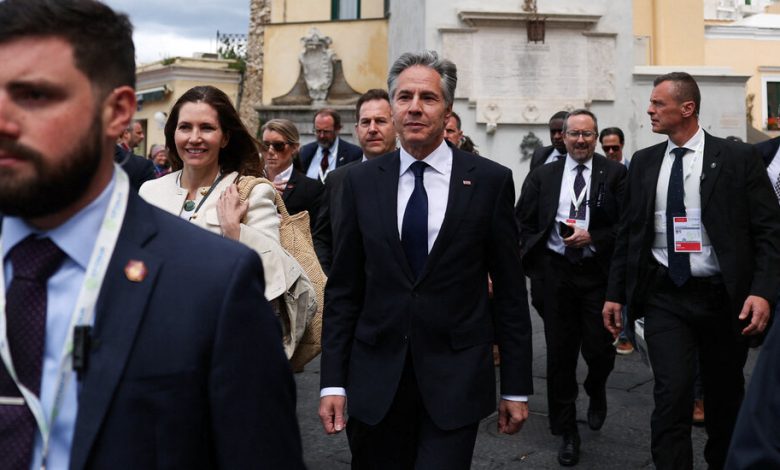Rough Seas for Blinken and Co. as Israel, Iran and Ukraine Cloud G7 Meeting

Rough seas were a fitting symbol for this week’s meeting of Group of 7 foreign ministers on the Italian island of Capri. Coast Guard ships that ferried V.I.P.s across the Gulf of Naples to the island on Wednesday swayed precariously, leaving the passengers reaching for their motion-sickness medicine — and, in some cases, their sick bags.
Though no ministers from this elite international coalition, including Secretary of State Antony J. Blinken, were known to have lost their lunch, the global problems they confronted were enough to make even a seasoned diplomat queasy: the risk of war between Iran and Israel, the nightmare in Gaza and Ukraine’s uncertain fate.
At the luxurious Grand Hotel Quisisana, Mr. Blinken came determined to project unity within a group that includes Britain, Canada, France, Germany, Italy, Japan, the United States and the European Union.
First created to help stabilize the world economy, the G7 has grown more active and ambitious in recent years, seeking to shape geopolitics and to be “a steering committee for the world’s most advanced democracies,” as Mr. Blinken put it in a closing news conference on Friday.
In the case of Israel and Iran, the G7 leaders claimed success.
On Friday morning, after an overnight Israeli strike against Iran in response to Tehran’s attack on southern Israel last weekend, the ministers huddled in an emergency session. Italy’s foreign minister, Antonio Tajani, later boasted to reporters on Friday that the G7’s collective calls for restraint deserved credit for “the small scale of the event.”



